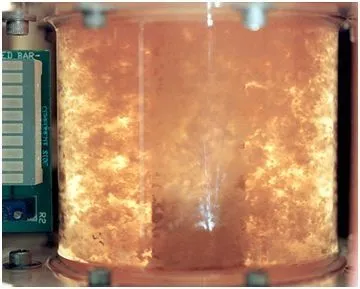Skin Cell Damage
Although the skin constantly renews itself throughout an adult’s lifetime, these long-term self-renewing stem cells begin to regenerate more slowly as part of the aging process. It is believed that the im- paired wound healing rate in aging skin may be due either to impaired stem cell mobilization or a reduced number of stem cells able to respond to proliferative signals.3 Lost or dying cells begin to outnumber their regenerated counterparts, which likely leads to common signs of aging, such as rhytids and laxity. It is for this reason that stem cells make intriguing additions to anti-aging products. Additionally, ultraviolet (UV) radiation causes damage to the skin, including photoaging, inflammation, erythema, sunburn and cancers.6-9 Photoaging is characterized by wrinkles, altered pigmentation and loss of skin tone. Specifically, ultraviolet A (UVA) and ultraviolet B (UVB) radiation have been proven to produce DNA damage directly and indirectly through oxidative stress.10 Solar radiation induces the generation of reactive oxygen species (ROS), which interact with proteins, lipids and DNA, altering cellular functions. Although the epidermis is composed primarily of keratinocytes that are rich in ROS detoxifying enzymes, an increased generation of ROS can overwhelm the skin’s natural defenses. Furthermore, ROS have been shown to mediate the phosphorylatin of protein kinases through a series of cascades, such as mitogen-activated protein kinases (MAPK), and activate transcription factors, such as nuclear factor-KB (NF-kB) and activator protein 1 (AP-1).These activities may con- tribute to cell proliferation, apoptotic cell death, inflammation and cancer.10,11 The upregulatation of gene expression through intracellular signal transduction pathways likely contributes to the development of skin cancer at the tumor promotion stage.10 Since this stage is reversible, it is a prime target for preventing, reversing or slowing the process. Stem cells have been proven to be protective against UV-induced radiation and ROS through a variety of mechanisms. It is this protective quality that also makes them useful for daily use in skin care.

Plant Stem Cells Benefit Human Skin
In recent years, researchers have identified naturally occurring botanicals with substantial antioxidant activity proven to protect skin stem cells from UV-induced oxidative stress, inhibit inflammation, neutralize free radicals and reverse the effects of photoaging. Consequently, cosmeceutical products containing extracts derived from plant stem cells have the ability to promote healthy cell proliferation and protect against UV-induced cellular damage in humans. In contrast to epidermal stem cells, plant stem cells are totipotent, meaning they are capable of regenerating an entirely new, whole plant. Through innovative plant stem cell technology, scientists are able to extract tissue from botanicals. Thus, the plant’s ability to regenerate stem cells can be harnessed for use in humans. The use of stem cells derived from botanicals, rather than human stem cells, avoids the controversy surrounding the source or methods of extraction of human stem cells while still harnessing the potential of these intriguing cells. #Regenere3D